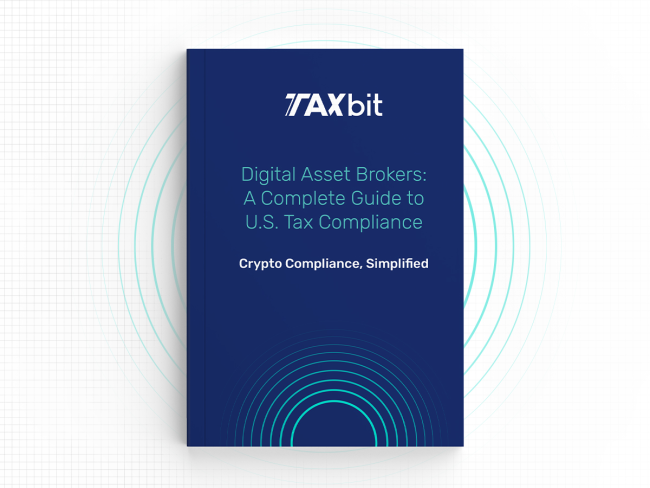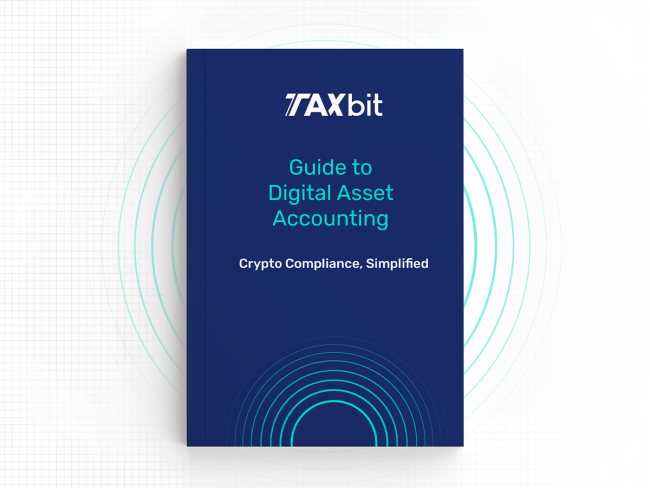The Long and Winding Road to a Resilient and Useful Crypto Regulatory Environment
Insights from a recent panel of industry experts at CfC St. Moritz

Published on:

In January, TaxBit’s COO Lindsey Argalas joined Michael Sonnenshein (CEO at Grayscale Investments), Mark Foster (EU Policy Lead at the Crypto Council for Innovation), and Donna Redel (Professor at Fordham Law School, Wharton, and Columbia Business School) to discuss the present and future of blockchain regulation.
To open the discussion, Professor Donna Redel asked the panelists:
“So, the digital assets industry has often complained that the U.S. doesn't have a coordinated rational approach to regulation. How would you respond to that not only from your experience but in general?”
Michael Sonnenshein, CEO of Grayscale – who runs one of the largest digital asset investment firms in the world – responded:
“Being at Grayscale for the last nine years, and really having our business rooted in compliant and regulated investment offerings – it's always been our approach to ask for permission, not for forgiveness as an organization. And so what's different about the U.S. as compared to other parts of the world, is how fragmented the regulatory environment is…”
After discussing regulatory developments in the E.U. such as the MiCA framework with Mark Foster, the discussion shifted to Lindsey who is asked, “Where have you seen regulation of digital assets best adopted, and why is regulatory clarity important?” Lindsey answered:
“I think you can’t underestimate the importance of clarity on the regulatory front. Right now we see a paralysis of a lot of very well-intended firms and institutions that would like to engage with digital assets – but to Michael's point, in the absence of regulatory clarity, are reluctant to do so…”
Donna Redel then addressed Michael Sonnenshein: “Post-FTX, there’s been a fair amount of criticism of the SEC. But that criticism is not new for many, including yourselves, with respect to the ETF. I know that you filed a lawsuit… Even before that, you had your lawyers write a very in-depth letter about why the SEC is not complying with certain kinds of other laws within the country. How do you think the SEC, in your opinion, has specifically failed the retail customer?”
Michael responded by explaining: “I think it's an amalgamation of a couple of things… When there is regulatory clarity… It's not just about unlocking opportunities, it's also unlocking them within regulated frameworks where there are no questions about where the law does and doesn't stop. And a lot of the failure on the SEC’s part is… Their methodology has centered on regulation by enforcement.
Regulation by enforcement is just, literally, every day we wake up and the SEC is calling out a bad actor by imposing fines or some kind of judgment against them… Every industry has bad actors and we certainly want those bad actors to be called out and to be pulled out of the crypto ecosystem, but if you look at those enforcement cases, they then just become landmines… That businesses like mine and others then have to use as guideposts of where to not step into.”
Later, the discussion turns back to Lindsey with the question: “Since the FTX fallout there's been a number of accounting firms that have publicly stepped away from wanting to do this… This is at the same time in which the industry participants are wanting more real-time accounting… How do you see the path forward in this?” Lindsey answered:
“Clearly, the FTX debacle has shown a bright light on accounting practices. It's underscored the need for much greater transparency and a much higher bar for the quality of financial data… Basically, we have lost trust in the system in terms of the financial data, and as a result, accounting firms are reluctant to walk into that because they can't do their job well… Companies need to become grounded in solid accounting practices, internal controls, and adhering to the rules of reporting requirements…
Frankly, the accounting for digital assets is extremely complex, it is much more complex than traditional financial reporting. The incumbent tools, processes, and systems that companies use today are not fit for the complexity – the high volume of transactions and the high price volatility – so the accounting problem that has surfaced… At TaxBit we're focused on accounting tools and solutions that help companies track calculate and report on their digital asset activity in a very controlled manner which then allows the accounting firms to come in and have confidence in verifying proper financial statements…”
The discussion then turned to the importance of education, and how each of these panelists’ firms are engaging with various regulators who are increasingly hungry to learn more and draft rules for this emerging asset class. To highlight an upcoming key regulatory milestone that regulators are currently grappling with, Lindsey explained:
“In 2021 the U.S. passed the Infrastructure Investment and Jobs Act which actually had requirements in there for digital asset brokers. We are still awaiting the specifics from Treasury, which we expect here probably in the next quarter or two, and that will give clarity on the tax regime in terms of the information we're reporting exactly, who falls under the digital asset broker definition, and what kind of information do these exchanges need to provide to their consumers so that they can be compliant. And so there's a lot of specificity that is forthcoming…”
To view the full panel discussion, check out the YouTube link here

Download our Digital Assets Brokers: A Complete Guide to US Tax Compliance to gain detailed insight into imminent tax regulations


